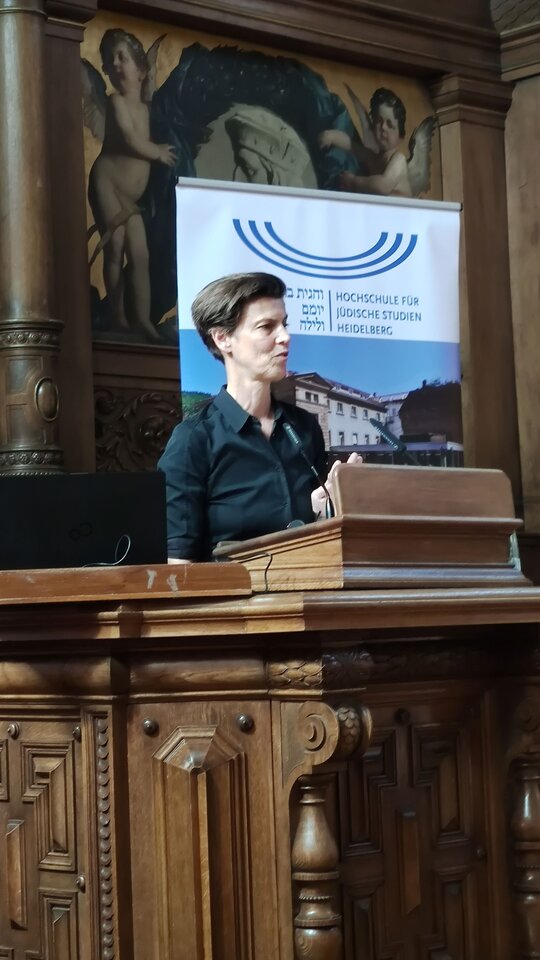After more than four years, the Heidelberg University Lecture was to take place again in the auditorium of the Old University of Heidelberg. This series of events was initiated by Prof. Dr Salomon Korn, at the time Vice President of the Central Council of Jews in Germany and Chairman of the Board of Trustees of the Heidelberg University of Jewish Studies, in 2005 and has already attracted many well-known speakers: from literary critic and author Marcel Reich-Ranicki, former Chancellor Dr Angela Merkel and actress Iris Berben to actor and presenter Harald Schmidt and social scientist and author Dr Necla Kelek.
Carolin Emcke's presentation yesterday was a very special event. The author and publicist took the audience on a journey on the subject of Witnessing and War - On the Ethics of Storytelling: Using photos, they were able to accompany the speaker on her search for the truth. Admittedly, some of the images shown of theatres of war, devastated people and destroyed cities were disturbing in their depicted cruelty - although Emcke always warned the audience in good time to close their eyes if they did not want to look at these images. In the context of the speaker's sensitive and thoughtful words, however, they helped the audience to grasp the difficulties of bearing witness.
"Witness" instead of distanced, objective observer: the difference is important, according to Emcke, as no one should consider themselves infallible. Instead, as a witness, reflecting on her own subjectivity, her own errors and her own limitations, she must always struggle for the truth. Unlike the people whose suffering she reports on, unlike the survivors of violence in war zones, she can leave again and is aware of this privilege.
She commented on the field of rubble in Port-au-Prince (Haiti) after the 2010 earthquake with the words: "At first, this sight is incomprehensible, this scale. Consciousness lags behind experience." In addition to not being able to understand due to being overwhelmed, there is often also a reluctance to believe, aspects that often go unmentioned in war reports and documentaries. According to the speaker, there is a risk of moral resistance being aroused in us, especially when wounded people tell their stories of suffering: It simply cannot be right that people do this to each other.
Over the course of more than an hour, the audience accompanied Carolin Emcke on her journey through the war zones and ruins of the world, but also on her inner journey, reflecting on her own ideological and cultural blindness and normative expectations, always in search of a description of the truth.
The winner of the Carl von Ossietzky Prize spoke freely, precisely and calmly. After the presentation, she invited questions from the audience, for which she was open and interested. And while the Rector of the Heidelberg University of Jewish Studies, Prof Dr Werner Arnold, already admired her for her courage in his welcoming speech, Carolin Emcke showed one thing above all during her lecture: her own truthfulness.





